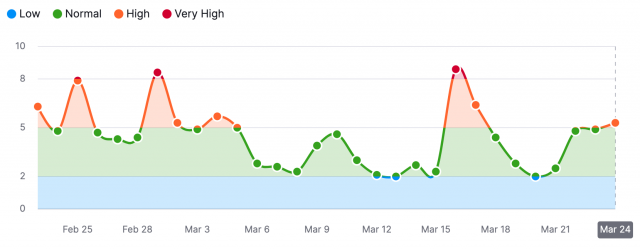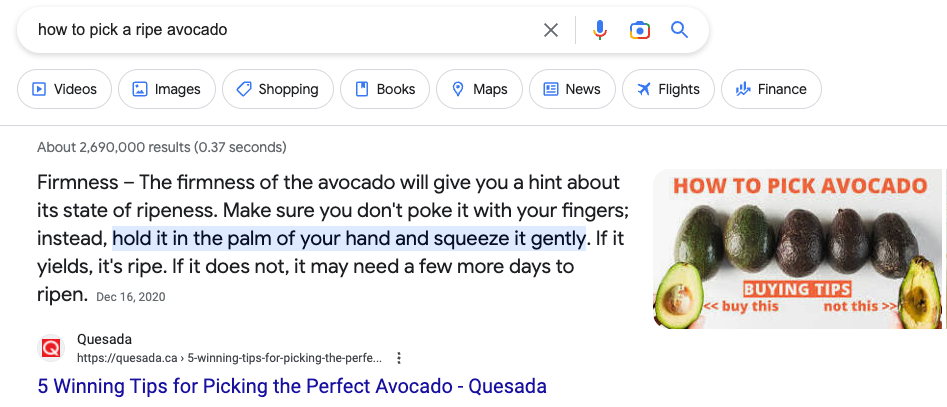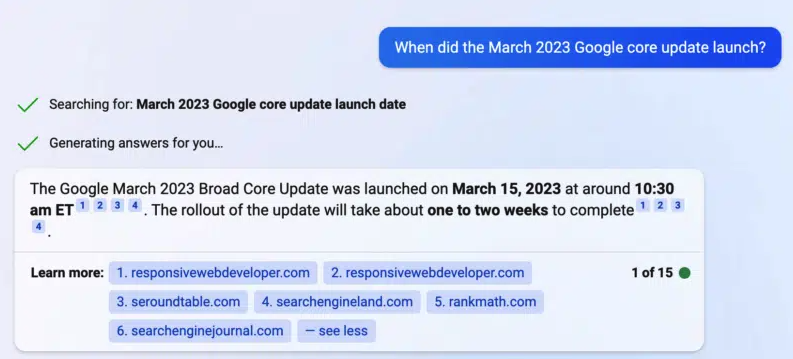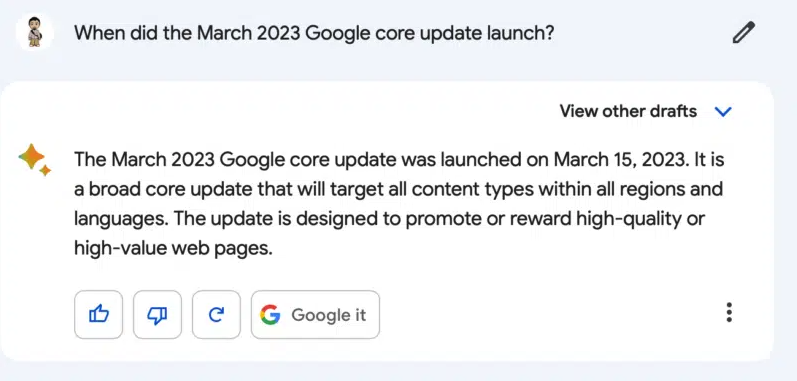
Welcome to April, and congratulations on surviving Q1 of 2023! We’ve seen several major changes to marketing and SEO for the year, and we’re barely 3 months through it.
In this month’s update, for the first time all year we’re not going to spend a majority of this article just going over AI and how it will change and impact the search landscape. We’ll cover it, don’t you worry, but we have a few other things to go over too including our first Core Algorithm Update of the year! Let’s get right into it.
March 2023 Broad Core Update
On March 15th, Google released its first Core Algorithm Update of the year. The difference between a core update and other updates we’ve seen this year like Product Reviews Update in February, includes broad changes to the Google algorithm and systems. Google says that core updates mean they’re delivering “helpful and reliable results for searchers”.
While Google never says exactly what a core update covers, data on websites that drop or increase in rankings help us know what kinds of updates Google made. In their release, Google again mentions good content. “That’s what our algorithms seek to reward.” And continue to emphasize “helpful, reliable, people-first content.” In this case, no one type of industry or type of website was hit, but major fluctuations happened across the board. From local websites, to e-commerce, to YMYL-type sites, and more.
Volatility reports show the March 2023 Broad Core Update was a big one. It seems to reward great web pages with good content rather than penalize pages with poor or weak content. Google’s Danny Sullivan said, “core updates can involve image results or any type of content because they involve our core ranking systems that themselves involve all types of content. That’s why our page about them mentions ‘content’ so often.”
If you found your site dropped in rankings in the past few weeks, you might want to try a content audit to see your weak points and start to update your posts and descriptions for better keywords and information.

Semrush noted very high volatility with this update compared to previous updates that didn’t slow down much until after the update finished rolling out on March 28th with big spikes in volatility and rank changes for all kinds of websites bookending the first and last day.
Highlighted Snippet Launch
Beyond the Google algorithm and heated AI competition, Google upped its featured snippets game in March. Not only are snippets and zero-click search results continuing to show up for popular queries, it’s now even easier to see the information as a user. After testing for several months, Google launched highlights in their snipped results to make the answer even more noticeable.

The blue highlight doesn’t show up for every query. But you’ll see the blue highlighted text for many simple how-to or explainer queries. Google tested this for several months with both yellow and blue highlights.
AI Updates
Now let’s get into AI news for March and how it’s impacting search results and SEO.
Bard
First let’s talk about Bard, Google’s direct response to Bing’s Open AI and Chat GPT integration. While Google announced Bard last year, its capabilities and enhancements make it a big player in the AI SEO game. Google began to open Bard on March 21 for anyone in the US or UK to sign up for a beta test. You can join the waitlist, but you can’t use your own Google Workspace account. You need a personal Google account.
The product lead for Bard Jack Krawczyk did want to emphasize one thing though: Bard is not replacing search results. “Bard is separate from Search, so talking about the Search screenshots in the context of Bard isn’t accurate. Bard is one thing, and then generative AI features in Search are separate. Bard is a standalone experience, not in Search.” To me that means they’re still working on making sure they have the most accurate information.
In our own testing and reading what others are saying online, Bard seems to be a bit more sophisticated and can even generate code compared to Chat GP4 and Open AI used with Bing. It also generated results faster, but perhaps it has fewer users taking up bandwidth.
A big criticism is lack of cited sources or footnotes like you would find on Bing. Google updated its Bard FAQs to address this question saying “Bard will likely show citations when Bard ‘directly quotes at length from a webpage.’ Otherwise it won’t show the citation because Google considers it “original content”.
Take a look at these examples from Bard and Bing taken from Search Engine Land.
Bing


GPT-4 Beta
Also in mid-March, OpenAI, the group behind Chat GPT announced GPT-4, a better language model than GPT-3 that went viral late last year. OpenAI says it’s a dramatic difference in capabilities. GPT-3 failed a simulated bar exam, but GPT-4 dominated the same exam scoring in the top 10%. There’s still definitely some work to be done because it still gave factual errors. OpenAI themselves have said that the software isn’t yet perfect, and still less capable than humans in many scenarios. But GPT-4 seems to be able to pick up on contextual cues as well, a huge step for machine learning. While users can still sign up for Chat GPT for free with the 3.5 model, GPT-4 has a paid subscription.
DuckDuckGo Getting in the AI Game
Much like Bing, then Google, arguably one of the most popular privacy-centered search engines/browsers is also getting in the game. In March they announced DuckAssist, a new feature generating natural language answers to queries pulling data from Wikipedia and other related sites like Britannica. Similar to how OpenAI works for Bing, you type in a query, and DuckAssist generates a short summary of what it finds in Wikipedia. You can try out DuckAssist right now through the browsing app and browser extensions.

